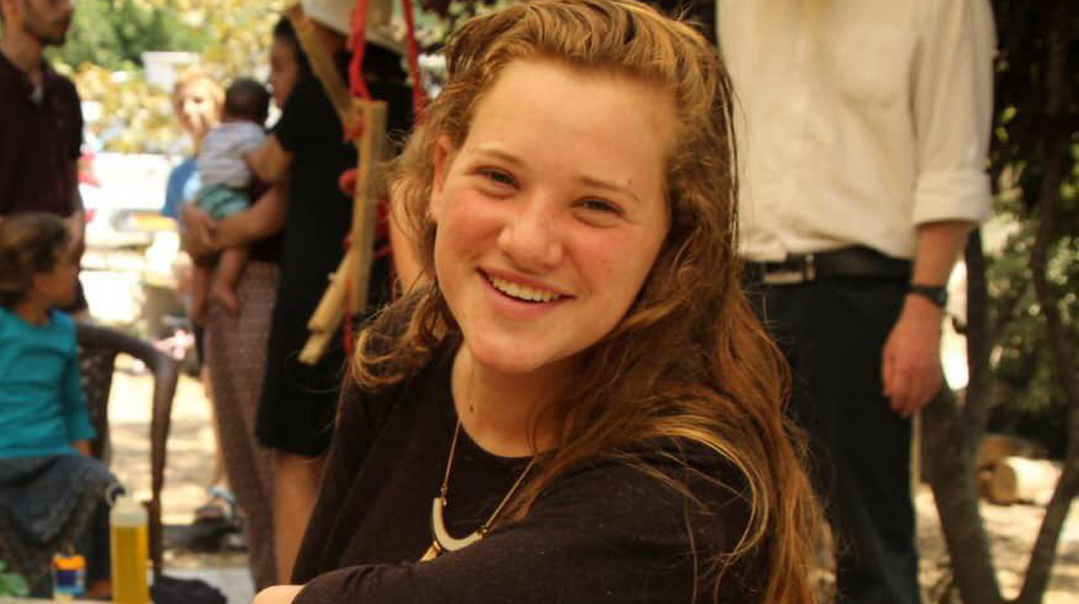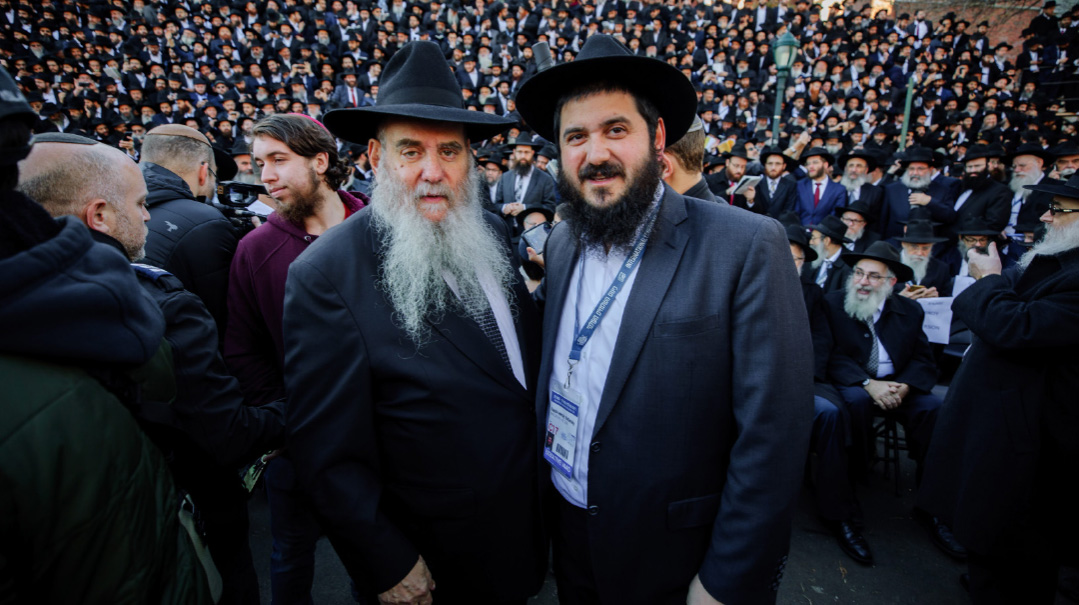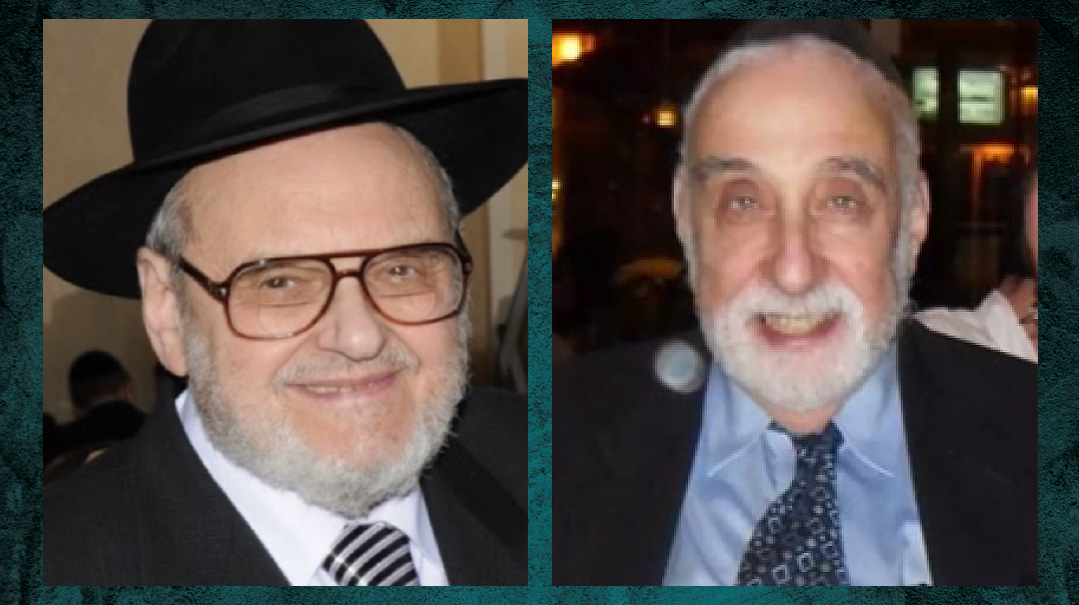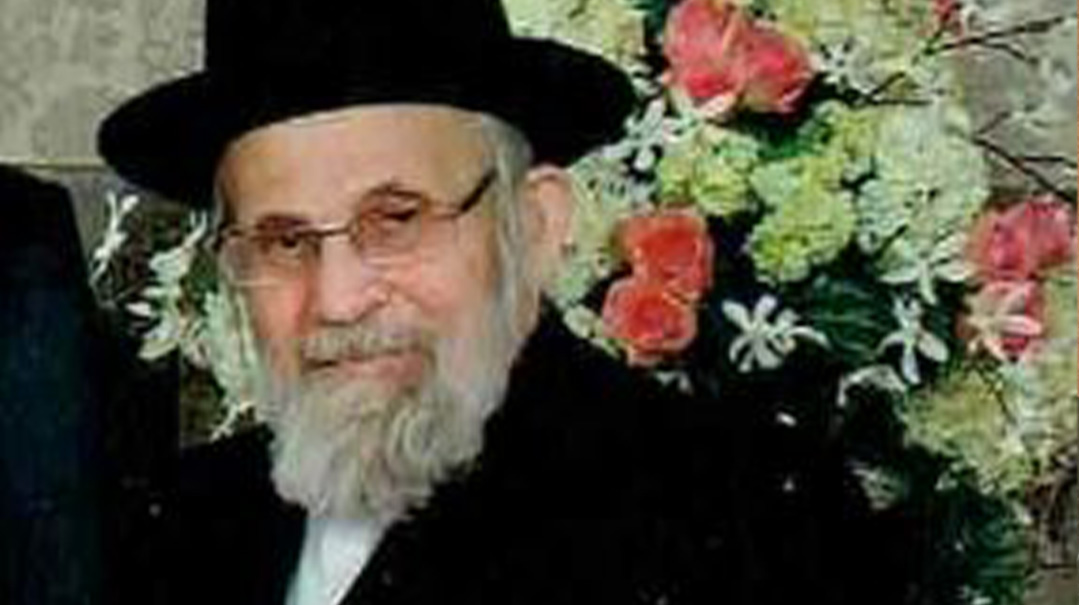Rina, Tell Mashiach to Come

"Rina, now that you are 'up there,' tell him to come. We need him so badly. Tell him to come already"

"Why don’t you guys join us for Simchat Torah?”
On the line was my husband’s yeshivah classmate at the time, Rabbi Eitan Shnerb, whose 17-year-old daughter Rina was murdered last Friday when terrorists detonated a concealed bomb as he, Rina, and 19-year-old Dvir were on a hike.
That day 22 years ago, it was anything but an ordinary Yom Tov invitation. Together with one other family, Eitan and Shira left the comfort of a Torah community and moved to Lod. Routine shootouts between rival Arab gangs, bustling drug traffic, and a lack of Torah education weren’t enough to deter them. Pioneers of the nascent garinim Toraniim outreach movement, they believed that by moving into the poverty and crime-ridden slums of Lod, they could turn the town around.
And so they invited us to join as reinforcements that first Simchas Torah in town. Instead of dancing around the bimah, a small crowd took sifrei Torah out into the streets and made rounds of a dozen or so small, decrepit shuls. The surprise and delight on the local residents’ faces as they watched young men sing and dance in the streets were priceless.
That Yom Tov was a harbinger of things to come. We continued visited the Shnerbs in Lod over the years, and witnessed the amazing turnaround they created: a small kollel, followed by Torahdig kindergartens, schools, high schools, and a yeshivah. More families joined and reached out to the local population with adult education and kids’ activities. With time, instead of Jews leaving, hundreds of new families moved into the now-attractive Lod community.
However, I only grasped the Shnerbs’ full impact on the town two years ago at the wedding of their oldest daughter. Next to the friends and family sat dozens of the poor and underprivileged residents of the city, who receive assistance from the family’s numerous gemachim. Many people move out-of-town to create a new frum “ghetto.” The Shnerbs came to Lod to be with the people, to spread Yiddishkeit and chesed to everyone, socio-economics and hashkafah notwithstanding.
Yet as local residents sit next to Rabbi Eitan in shul or pass Shira in the supermarket, I doubt how many give them credit for their far-reaching influence. The Shnerb family’s trademark chesed is well-concealed by their tzniyus and humility.
We got a taste of that humility one night earlier this year, when Rabbi Shnerb and his driver stopped by for coffee while on reserve duty in the area. Despite having 11 children and being exempt, he has been volunteering as an army rabbi in times of war and peace. That morning, while checking the eiruv around an army outpost, Rabbi Shnerb noticed a group of armed terrorists making their way to a nearby Jewish community. He called for reinforcements and thwarted an infiltration. Hours later, as the driver shared the story, Reb Eitan laughed off the praise, crediting the zechus of Shabbos for putting him “in the right place at the right time.”
Like other Shnerb children, Rina Hy”d soaked up her parents’ values, caring for Klal Yisrael while helping out those near her. She was that girl — the one who organized teachers’ end-of-year presents and stayed behind after school events to clean up.
Yet she also saw the bigger picture. She was bothered by how people drift apart while surfing on smartphones. During the shivah, Shira Shnerb suggested that setting the phone aside and spending time with the family for one hour a day would be a fitting tribute to Rina’s memory.
As I watch the Shnerb family face the greatest tragedy imaginable, I’m in awe of their unshakable emunah. Through tears, they thank Hashem for the many miracles they have experienced in this ordeal. And it is with this emunah that Rina Shnerb had packed a white blouse into her suitcase, as she came to learn Torah in Jerusalem just two weeks ago. “So I’d have what to wear, when Mashiach comes,” she told a friend.
Rina, now that you are “up there,” tell him to come. We need him so badly. Tell him to come already.
(Originally featured in Mishpacha, Issue 775)
Oops! We could not locate your form.













